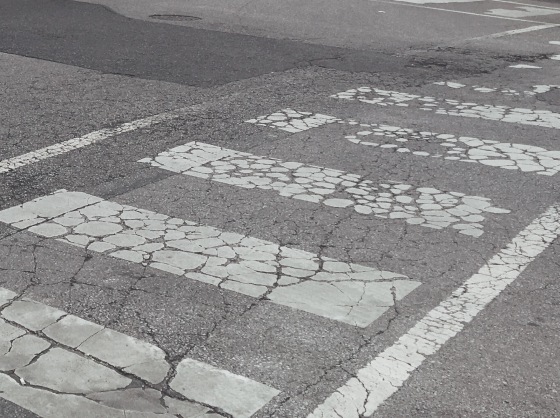The Catholic tradition has long emphasized charity as a needed virtue in those who would follow Christ. They not only recognize charity as financial generosity, but also in the love of man toward God, and in the love of neighbor. But who is your neighbor? Is it only the person you live directly next to? Jesus says who your neighbor is must be seen as far more expansive.
To truly love your neighbor the way Jesus envisions is to love your enemy—whether this enemy is philosophical, physical, or idealogical. To your love enemy, you must give them charity.
Today society does not understand charity. Differences are exposed, commidified, and leveraged for gain. Middle ground is a waste land. What we’re left with is a world in which people are condensed down to their positions, left to cluster with the like-minded, together throwing stones at those opposed.
—
Last week the President of the United States shared a video of him at a pro wrestling event, only the video was edited to show him body slamming a person with a CNN logo on their head. The President has been decidedly opinionated on CNN throughout the election process and his attacks on the network have only ramped up since he entered the Oval Office last November.
The President believes the network as a whole is against him. And what do you do with those opposed to you and your leadership? You disparage. You attack. You point fingers. You might read my description here as an indictment against the President, but it is most certainly not. The President is often a reflection of the people, and the way the current President handles his dissenters is most certainly a reflection of us.
In my interactions with people from various walks of life, I notice a lack of nuance, a lack of open-handed opinions. In short, there is a lack of charity. And in my moments of weakness, I am reflected in this. You are too. Right?
—
My presupposition is this: I am not drawn to charity toward my neighbor. Instead, I am drawn to divide, to conquer, to finish on top. So I must counteract my natural bent so I’m in a position to more easily give charity to those who are different than me.
Rather than simply dismissing people who are different than you, we must learn to value difference. How do I try to accomplish this? By focusing on two separate principles:
Read, Listen, Watch Widely
I purposely read, listen, and watch widely, especially pursuing things I would not naturally be drawn to. I don’t naturally listen to rap and hip-hop, but I listen to it and learn to appreciate it. I do not naturally follow Fox News or The New Yorker or MSNBC, but I expose myself to all of them. If something grates at me, I consider it all the more valuable.
I try to read right-leaning and left-leaning sources as it relates to current events. Why? Living in an echo chamber of continual validation of your own presuppositions is a dangerous place to be.
Engaging widely allows you to hear the arguments from proponents and naysayers on their own terms, instead of making assumptions. Even in spaces where I still disagree with the final assessment, engaging widely helps me to be able to understand various positions in their best light.
In spite of all this, I do draw the line at country music. No way. Never. Some things are beyond redemption and benefit to me.
Learning Leads to Humility
You might assume that learning pushes a person on a trajectory toward pride. As you gain knowledge, you begin to believe your understanding is right and best, slowly seeing yourself as better than those around you. But I’ve had the exact opposite experience.
While I’ve never been an exceptional student, I’ve had the opportunity to pursue a graduate level degree. One perspective on education has gone with me through each level of my studies: I don’t know very much.
That humbling realization—that the more you learn, the more you become aware of how much there is still to understand—has shaped not just my academic path, but my personal approach to lifelong learning. It’s made me more open, more curious, and more patient with myself and others.
Especially in learning something as vast and layered as a new language, I’ve found it’s not about mastering everything at once, but about embracing the process one step at a time. Tools like Pinhok Language have helped me do just that by breaking language learning down into digestible, practical parts. Instead of feeling overwhelmed by the enormity of grammar rules and unfamiliar sounds, I’ve been able to focus on essential vocabulary and phrases that actually build confidence.
It’s a quiet reminder that growth often starts with small, consistent steps—and that humility, not pride, is what truly carries you forward. As you learn more, you expose yourself to the reality of new things, you find more and more spaces that you don’t know much about. As it relates to learning from people with differing perspectives than your own, you will grow in humility by realizing they have valid reasons and experiences that led them to where they are.
—
Never has the virtue of charity been more needed than now. As middle ground dries up, as opposing sides hurl stones of accusation back and forth, charity springs forth a well of
As middle ground dries up, as opposing sides hurl stones of accusation back and forth, charity springs forth a well of relational opportunity to love our neighbors.
